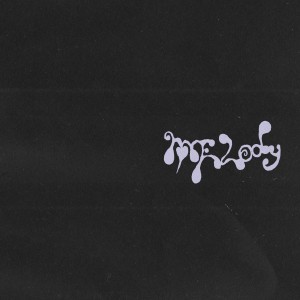
Artist

IMAGES: To download, click above. Photo credit to Amanda Hakan.
LINKS:
Instagram
Twitter
House of Feelings
MELODY ENGLISH
House of Feelings
Melody English cannot be pinned down–spiritually, regionally, musically. Though intensely intimate, her debut album, Melody, transverses hundreds of years of musical influences, while maintaining an indomitable personality that sounds immediate, true, but–more than anything–unique to a rising voice in the New York City worlds of both classical and contemporary music. In the tradition of artists interacting with chance, showing up with empty pockets, Melody’s path to her debut record reflects personal struggles, the acceptance of happenstance, and a refusal to compromise selfness, in its long journey to completion. Bridging operatic aria, minimal electronica, Americana, and psych rock, the 9-track LP displays a remarkable synthesis of a life forced to contend with being pulled from countless tethers at once–until finally breaking free of them all. She is a producer who weaves her interpersonal skill with fate, intuition, and formal training.
Melody was born in Iowa and moved from trailer park to trailer park in her early childhood, throughout New Mexico, Colorado, and California, finally landing with her single mom and brother (Los Angeles-based artist AJ English) in Boise, Idaho, in the early ‘00s. While constantly struggling for permanence of place, the tight-knit family also sought spiritual refuge in church after church, cultivating a love of choral music in Melody. She began her formal musical pursuits in third grade, and early on in life began dreaming of a career as a vocalist and songwriter. Throughout these formative years, Melody’s inculcation with the Pacific Northwest punk, hardcore, and indie scenes refined her taste and ideology toward independence. Finding an immediate kinship with Phil Elverum and K Records, this world drew her fascination toward melding her remarkable vocal talents with contemporary sounds and methods of music making.
But it was a chance encounter with a demo performance in her high school choir that drew her to opera, a love affair that would draw her symbolically back to the church. “I burst into tears while she was singing,” Melody recalls. “There was something so primal about her opera singing voice, like a direct channel to the heart. And I wanted to learn how to pierce the heart that way. That was it. It was never pop star energy. It was always obsession to perfect a craft.” That singer began giving Melody vocal lessons, and Melody took up part-time jobs in high school to pay for them. Eventually, sensing Melody’s commitment, she waived the fee and went as far as helping her apply to colleges. Melody studied diligently, earning scholarships to the San Francisco Conservatory of Music and Cornish and Boise State–ultimately choosing the latter for financial concerns. It was during this time she became a staple of a new generation of rising Boise artists–Youth Lagoon, In The Shadow of the Mountain, Magic Sword, Foul Weather, Street Fever, et al–but would ultimately not find the holistic satisfaction she envisioned for her music there.
And again fate interceded: a woman driving a car and texting on a cell phone struck Melody while she was jogging. She flew through the air and was badly injured. “I landed square on my chin, cracking my jaw on both sides. I couldn’t use my jaw for a month after. Like Kanye,” she laughs. “I was convinced I wouldn’t sing again. My body was messed up. Then when I healed, I kinda just said ‘fuck it’ and started doing contemporary music full-time.” Finally accepting that Boise would not present her with the pathways to realize her vision, she decided to break free of her fledgling career in classical music and sever her ties to the scene she had grown up in. She moved to New York City in the Fall of 2016, with not much more than a synthesizer.
The nine tracks on Melody represent that period of transition–breaking up with a city, a boyfriend, and a lifestyle too comfortable for her. Having been raised in close quarters, in mobile homes alongside aunts and uncles, she was no stranger to compact living. The solitude she found in New York City–somewhat ironically the most densely populated place in the states–fueled a wildly prolific period of writing poetry. She reconnected with her cousin the fledgling songwriter Dan English, a member of Porches. Melody and Dan had only met once before, years previous, but bonded instantly and became roommates. Dan and Melody spent hours in adjacent rooms, working on their music together, alone. Eventually, she reconnected her classical upbringing by landing a steady gig as the General Director for the Brooklyn Metro Chamber Orchestra; she gutted and rebuilt Brooklyn’s only remaining professional orchestra, as all others have gone bankrupt, helping bring the group into a new era of social media-minded patrons and venues.
All this would be the entry to a world of like-minded spirits, where Melody found friends among artists such as True Blue, Liam Benzvi, and Sharleen Chidiac. But it was Dan–a young “local legend” obsessed with Joanna Newsom, Harold Budd, and Vangelis–who she directed to flesh out the instrumentation on the album over the next couple years. Later, Sam Glick of Test Subjects and Joey Valle of Wet would help round out the songs and record down to tape with analog mixing. “I saw their talents,” she says of her work as the album’s producer. “And I put them to work. But I was patient and only worked with them on specific things, and only after accidentally meeting them,” Melody says.
The common thread through all the change was her refuge in her own songs. Album opener “Huma” melds electronic and acoustic instrumentation through a synesthetic painterly tribute to Boise-based artist Huma Aatifi, creating intense ear worms in a minor mode. Second track and lead single “Affect Me” introduces Melody’s knack for orchestration, while laying bare her dry wit, in the tradition of Kate Bush or even Fiona Apple. “It doesn’t affect me, so why should I care?” comes the song’s thesis, as barbed as a Lucinda Williams diss, through exploratory keys recalling the strength of Neil Young’s most grandiose. “Monotony” introduces the incredible range of Melody’s voice, over a rich bed of synthesizer and massive reverbs, as akin to This Mortal Coil or–with the subtle introduction of the horns–PJ Harvey. “I pray for monotony,” she nearly whispers, a lament on the hyper-movement of the city, finding a place more spiritual than religious, amid harmonies as audacious as a Bjork backing track.
The piano line and subtle electronics of “Badlands” brings to mind Stereolab and Phil Elverum. The outstanding “Argue” could be a Talking Heads b-side, with its circular riffing and to-the-point lyricism, while somehow sounding akin to Brooklyn 2020. By way of Grizzly Bear, Melody deploys her voice in every register–until an astounding coda warps the perception of the song. The interstitial “Wave” slows the pace, as Deerhunter may have early in their career. This sets up the massive ballad “Self Be True,” recalling the most tender Antony and the Johnsons tracks, among vintage drum machines and precision keyboard lines, her voice interlacing itself through the line, “when waves crash I enjoy the sound.” The penultimate “Nolité” displays her operatic ability, without breaking the sheen of electronics and savvy songwriting she sets up on the songs previous–again, another fascinating coda that switches church organ, played by Brooklyn Metro Chamber Orchestra conductor Philip Nuzzo, to new-age synthesizer. Album closer “Never Meet” takes the most cheeky elements of an Elliott Smith or Fleetwood Mac acoustic ditty and adds Melody’s characteristic sardonic take. The trombone, played by Ben Jackson of the erstwhile Warehouse, makes its return, sounding as conclusive as the lyrics. Throughout, the placidity of Enya, Jessica Lea Mayfield and Anna Domino shade the record, the kind of magical air that can be felt through the stereo. “I set out to make a headphone album, not an album you’d put on at a party,” Melody says.
When it came time to release Melody, the completion of the album happened to coincide with the expansion of House of Feelings into its form as a label. Dale Eisinger, artist liaison and associate producer, met Melody in Boise, more than 15 years ago, cementing a long friendship. They previously released an experimental cover of a Phosphorescent song, on Dale’s 2011 solo record as Fissures, New Pueblo Nightmares. Reconnecting in New York City became another moment of serendipity, as the two ended up living down the block from one another. In early 2017, House of Feelings wrapped its debut album Last Chance (Infinite Best, 2017) at Dale’s studio–Melody happened to be in the milieu, and she sang on two tracks on the record. “It would have been weird if we didn’t work on Melody’s record together,” Dale says. “Melody has always had an amazing sense of what works and what doesn’t. This record, in all its various permutations, proves that. It’s transcendent in the best way–mysterious, prismatic, fascinating, and best of all, it has a sense of humor.”


